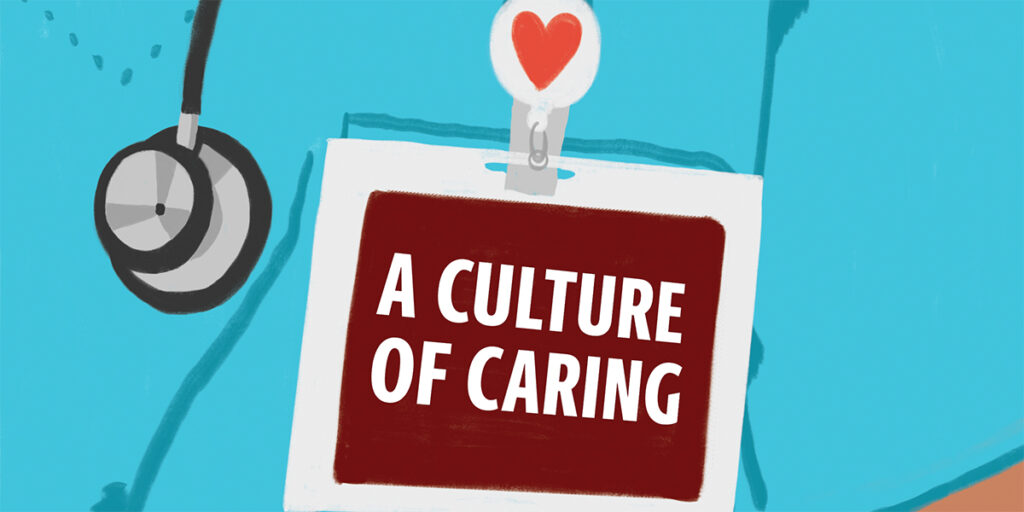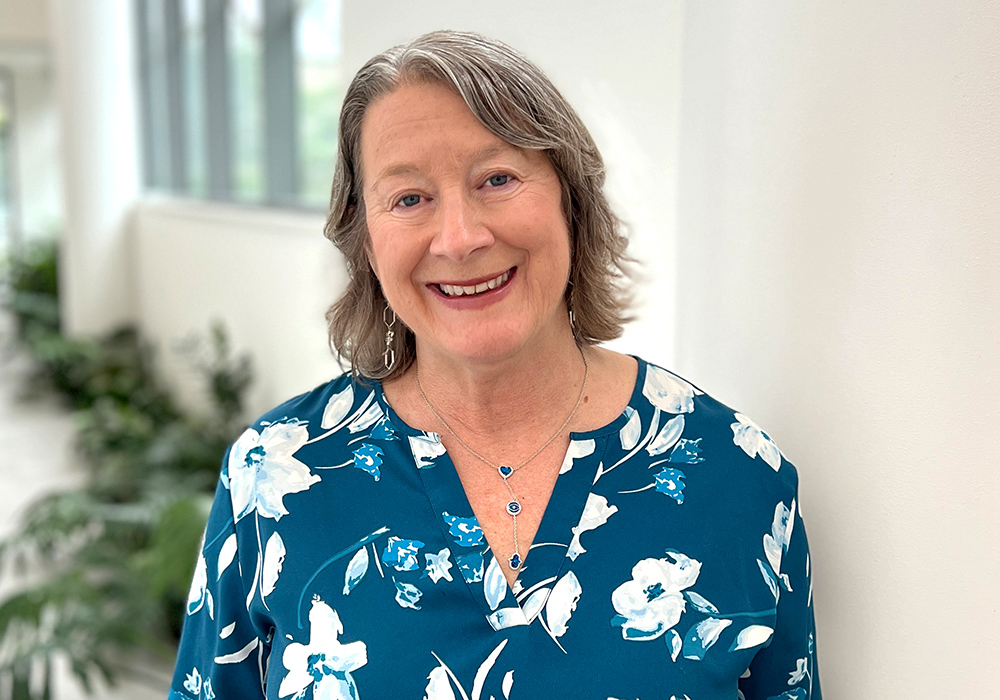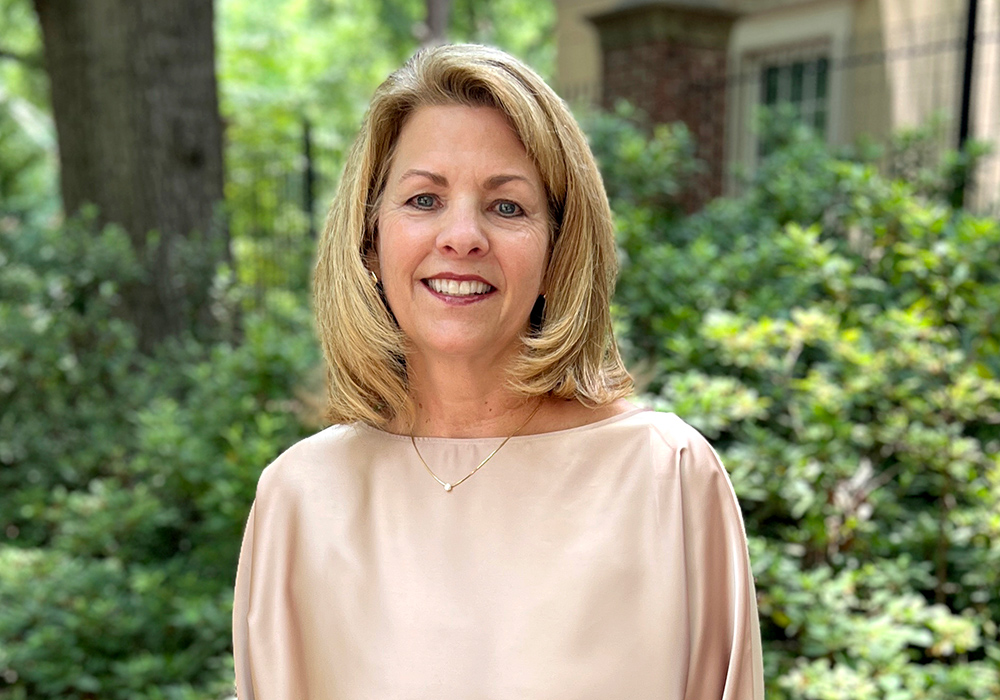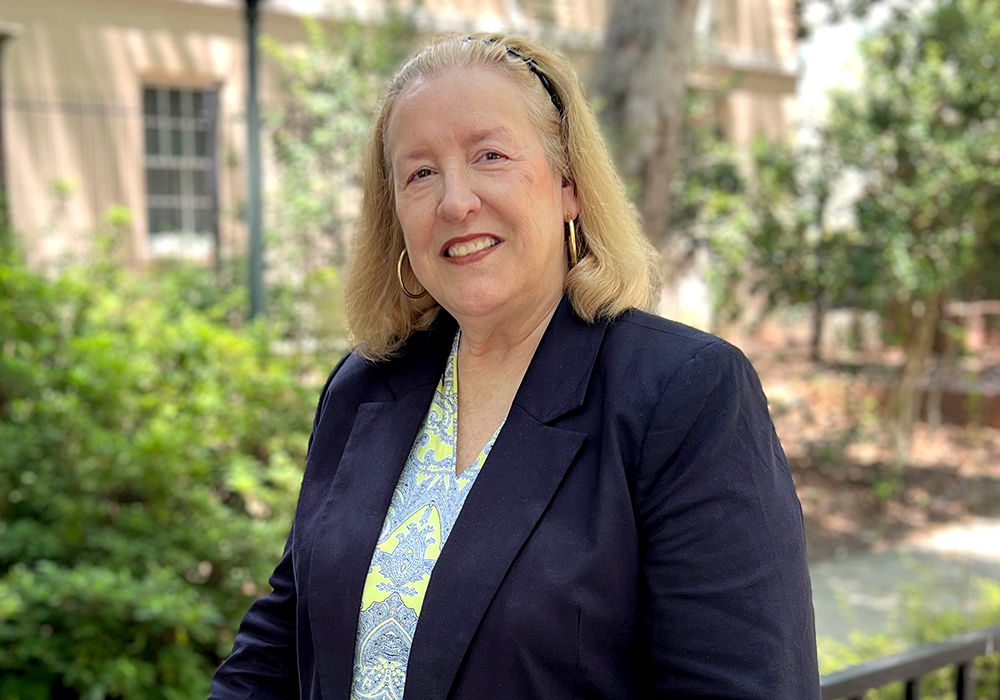From improving outcomes for premature babies to nurturing research advancements in
chronic illness to strengthening the next generation of nursing leadership, University
of South Carolina faculty members Robin Dail, Cindy Corbett and Jeanne Cavanaugh have
had careers worth celebrating. While these three center directors are retiring this
year, their legacies will endure through their centers’ continued impact at USC and
beyond.
In 1999, neonatal nurse practitioner Robin Dail stumbled across a small Canadian study
that got her thinking: Could wrapping premature babies in cocoon-like plastic bags
prevent hypothermia?
Dail’s first-ever research study showed that the simple plastic bag intervention stabilized
body temperatures in the delivery room better than standard care. Within a few years,
her findings were implemented into delivery protocols worldwide, preventing hypothermia
in countless babies.
That experience ignited Dail’s fervor for neonatal research, something she brought
with her to the University of South Carolina College of Nursing in 2017. Since then,
she has conducted and fostered other high-impact studies as director of the Perinatal, Pediatrics, and Family Research Center, a research group that evolved into a formally recognized university center in 2022.
There’s a reason for including maternal and family health in the team’s research focus.
“The morbidities that come with being a premature infant affect the family for a lifetime,”
Dail says. “And more and more it’s become clear that the mother is putting her baby
first at the expense of her own health. Sometimes the reason the mother has a premature
baby is because she’s not well herself.”

In addition to its core faculty from the College of Nursing, the PPFRC accepts affiliate
faculty from other universities and associate faculty from other USC academic units.
Take Jessica Bradshaw, a psychology researcher who investigates autism signs in infancy
and early childhood.
“Our common denominator is dysregulation of the autonomic nervous system,” Dail says.
“We talked for a while and thought, ‘Wow, we could look at this together because we
were looking at similar things.’”
Even though Dail is shifting gears into retirement — passing the center leadership
to nursing colleagues Tisha Felder and Jewel Scott — she isn’t stepping back completely.
In April, she was awarded a second R01 grant from the National Institutes of Health.
This project, another collaboration with Bradshaw, will examine neonatal autonomic
nervous system dysfunction as a predictor of autism in preterm infants.
Babies born prematurely experience significantly higher rates of autism spectrum disorder.
The link, Dail says, could be the stress of neonatal hospitalization on the babies’
underdeveloped nervous systems. Her team will collect body temperature and heart rate
data on 260 Prisma Health NICU infants to look for abnormal readings, then compare
that with ASD assessment data until the children turn 3 years old.
“It’s going to be a controversial hypothesis,” she says. “Do NICU stress and underdeveloped
nervous systems equate to getting autism later on? That’s the crux of the grant.”
In South Carolina, 60 percent of adults live with a chronic disease. Forty percent
live with two or more. It is the leading cause of death and disabilities, and nationally,
it accounts for more than 90 percent of health care costs each year.
Statistics like these resonate with Cindy Corbett. The former associate dean of research
and interim vice chancellor for research at Washington State University Spokane came
to USC’s College of Nursing in 2017 to continue studying topics like chronic illness
self-management. And as a SmartState endowed chair, Corbett had the funding and vision
to create a center for other researchers seeking to advance chronic care science.
“If we could bring together people with different strengths and provide more infrastructure
and resources, then that would make people more successful in conducting research
and getting funded for research to improve those outcomes,” Corbett says.
That gave rise to the Center for Advancing Chronic Care Outcomes through Research and Innovation, or ACORN. Since then, Corbett and co-director Lorie Donelle, the college’s Emily
Myrtle Smith Endowed Professor of Nursing, have focused on creating a nurturing, positive
atmosphere. The approach has been well-received, and ACORN has grown to 26 members.

“We’ve tried to make it a supportive environment, someplace where people feel safe
discussing issues they might have,” Corbett says. “And I think that we’ve been really
successful in doing that. Some of the new faculty have said it’s helped them make
connections with people because it’s a little smaller than the department or the college.”
ACORN has also grown its presence in the Palmetto State by building community partnerships.
One partnership is with the Humanities Foundation, which builds affordable living
communities for seniors and families. The other is with the Wiley Kennedy Family Life
Center, where ACORN hosts wellness presentations for older adults. The outreach is
mutually beneficial.
“Center members can talk about their research and give that knowledge in a way the
community can use it, and the community can inform what type of chronic care research
would be important,” Corbett says.
She believes her most meaningful contribution to the college has been her mentorship
of countless faculty members and students as they’ve sought guidance on research and
grants. And that impact won’t end with her retirement.
“Hopefully, I’ll leave that legacy with the people who I’ve mentored who will then
turn into really good mentors themselves,” she says.
Jeanne Cavanaugh remembers watching her father leave for work at sunrise. A family
practitioner, her father worked long hours, often traveling down dirt roads — black
doctor’s bag in hand — to visit patients in nearby rural towns. Thinking about her
parents sometimes brings tears to her eyes because it reminds her why she went into
nursing.
“I grew up with a father who took care of his community, and a mother who took care
of six children,” Cavanaugh says. “So much of who I am is because of how my parents
raised us, and their love of community is seen in all six of us.”
Cavanaugh was a nursing director at Prisma Health for 38 years before joining the
College of Nursing as director of clinical partnerships in 2016. In the years since,
she has taken on additional leadership roles — first as director of the Amy V. Cockcroft
Leadership Fellowship program and later as director of the Center for Nursing Leadership.
Nurses, she says, are committed to care at every level of their careers, even when
those careers lead beyond clinical practice. The Cockcroft Fellowship is a way the
college demonstrates that commitment by caring for the profession’s leaders. To date,
more than 300 fellows have completed the program.
“There are many executives today who are fellowship graduates,” she says. “When I
look at letters of support for new applicants, many are from Cockcroft Fellowship
alumni who are now in executive roles. It really is rewarding to see their growth,
and then they’re turning around and supporting younger leaders in their professional
development.”

One of those executives, former Prisma Health Midlands chief nursing officer Tina
Ralyea, will succeed Cavanagh as center director this fall and has already begun transitioning
into the new role. Ralyea completed the fellowship this year.
As part of Cavanaugh’s role with the center, she and Dean Jeannette Andrews travel
throughout the year to meet with chief nursing officers at health care systems across
the state. Their goal is to learn what these CNOs need and to strengthen relationships
in support of the future health care workforce. So far, their efforts have been a
resounding success. One recent visit in the Lowcountry led to the relaunch of an inactive
student placement program.
“The relationships we have established across South Carolina with major health care
systems are extremely strong, and that has really come out of this center work,” she
says. “Our clinical partners impact our students’ success tremendously.”
Each step forward, she emphasizes, ultimately boils down to the profession’s commitment
to caring.
“With any of the roles I’ve been asked to fulfill, it’s all about caring — whether
that’s for a nurse practitioner graduate student, whether it’s a nurse leader in a
clinical health system, whether it’s a chief nursing officer who needs support in
that role — it’s about caring for others. That’s really what we do well as nurses.”




